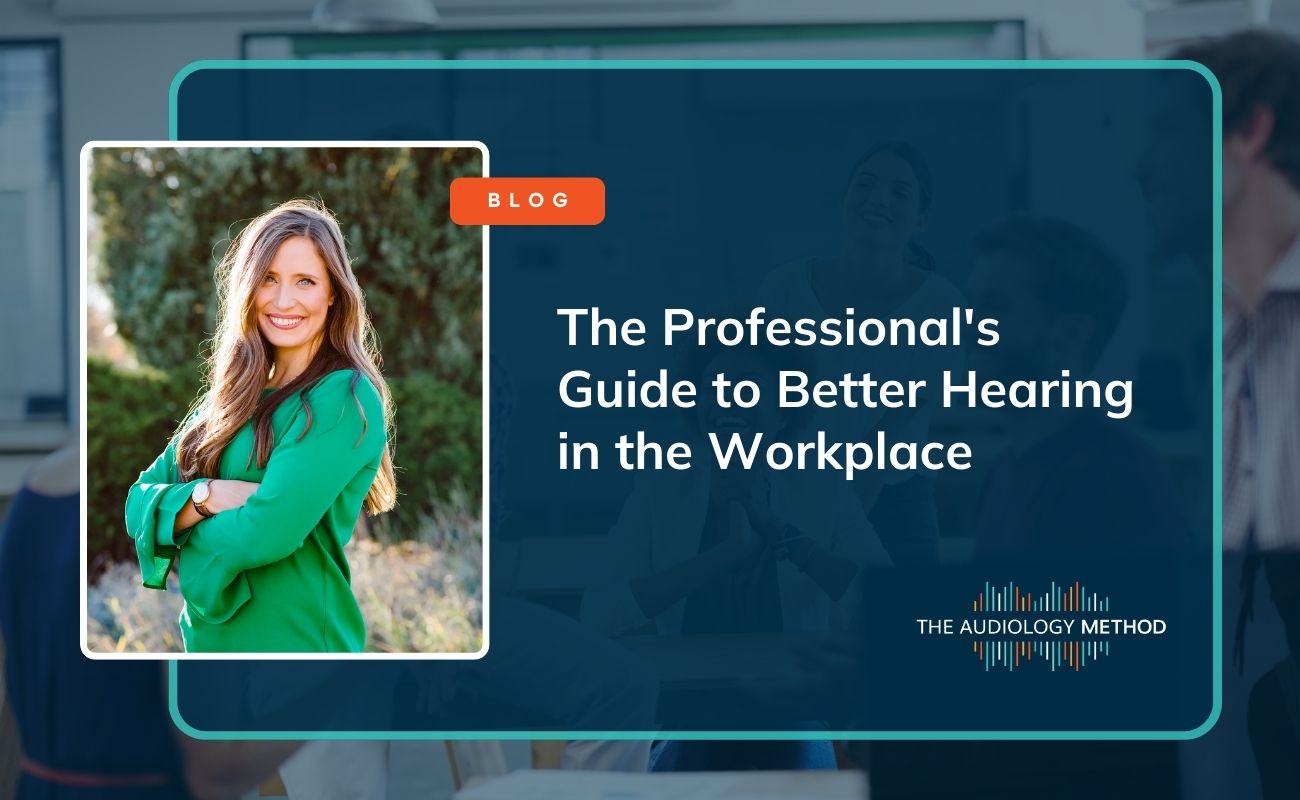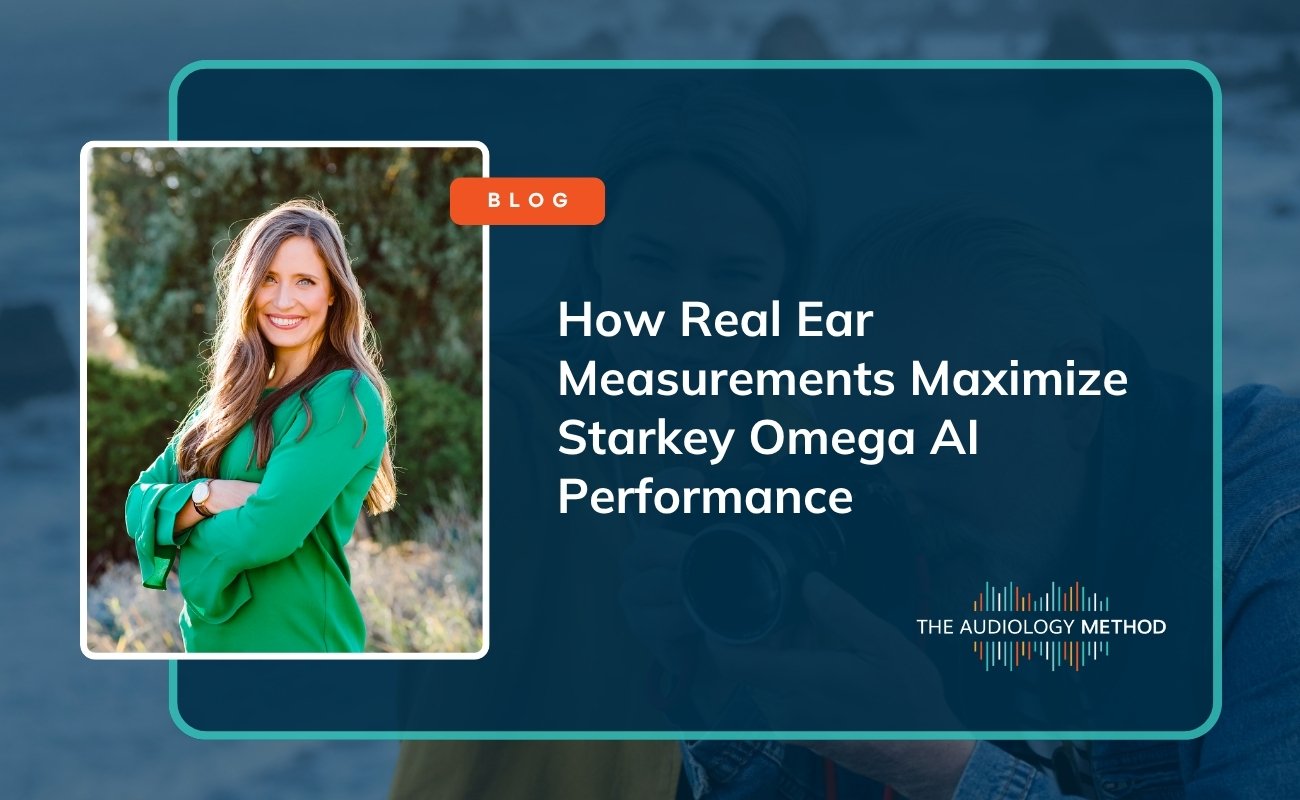

Hello, I'm Dr. Julie Link, your trusted audiologist at The Audiology Method in Centennial, CO. This is our first installment of a new "Ask the Audiologist" series.
The whole point of "Ask the Audiologist" is to create a judgment-free space where you can get your questions about hearing, tinnitus, hearing aids, and more, answered by yours truly. Think of it as your go-to spot for demystifying the often confusing world of audiology. Whether you're wondering about the latest hearing aid tech, curious about how to manage that tinnitus, or just want to know how to protect your ears at a concert, I'm here to answer your questions!
Today, I'll be addressing a common question we receive: "How do hearing aids improve quality of life?"
Hearing aids are more than just electronic devices; they're tools that can transform your life in numerous ways. From enhancing communication to contributing to mental well-being, hearing aids hold immense potential in elevating the quality of life for individuals with hearing loss.
Let's dive deeper into this topic.
Before we delve into the benefits of hearing aids, it's important to understand the impact of hearing loss. Hearing loss can occur gradually, often unnoticed until it has progressed to a significant degree. It's a common issue, affecting nearly everyone by the age of 100. This loss of audibility can lead to a host of problems, including social isolation, cognitive decline, and even physical health issues.
Untreated hearing loss can lead to cognitive and emotional problems. Communication difficulties often lead to social withdrawal, which can further result in feelings of loneliness and depression. Research also suggests a strong link between untreated hearing loss and cognitive decline, including an increased risk of dementia.
Hearing loss can also have physical implications. For instance, research suggests a correlation between untreated hearing loss and a higher risk of falls. This is due to the crucial role our auditory system plays in maintaining balance. Untreated hearing loss has also been linked to cardiovascular disease, possibly because the stress of straining to hear can raise blood pressure and heart rate.
Imagine being able to have a conversation at a noisy restaurant without struggling, or enjoying a movie without having to crank up the volume so high it annoys everyone else. It's about reducing the stress and anxiety that often come with hearing issues, like tinnitus or hearing loss. Less stress means better mental health, better relationships, and yes, a better quality of life.
Hearing aids are powerful tools designed to address these issues. They don't just amplify sounds; they help the brain process auditory information more effectively, which can have far-reaching benefits for your overall health and well-being.
A landmark study in 2019 found that using hearing aids can slow cognitive decline in older adults. By enhancing auditory input, hearing aids help decrease brain atrophy, resulting in improved speech comprehension and cognitive function. This suggests that treating hearing loss with hearing aids may potentially slow the onset of dementia.
Hearing aids can significantly improve communication, reducing the social isolation often associated with hearing loss. By enabling clearer and more comfortable conversations, hearing aids help individuals stay engaged with family, friends, and coworkers. This can lead to stronger relationships and a more active social life.
The improved social engagement brought about by hearing aids can also have a positive impact on mental health. Research has shown that individuals who use hearing aids are less likely to report depression and psychological distress, compared to those with untreated hearing loss.
Research in 2020 revealed a correlation between consistent use of hearing aids and a reduced risk of falls. By improving spatial awareness and balance, hearing aids can contribute to physical safety and independence.
As an audiologist, my role extends beyond prescribing hearing aids. I work closely with each client to ensure they're getting the most out of their hearing aids. This includes comprehensive hearing assessments, personalized hearing aid fittings, and ongoing support to address any challenges or questions that arise.
At The Audiology Method, we value our clients as individuals and strive to empower them through every step of the hearing care process. Our goal is to provide personalized, considerate, and thorough audiological services to improve your quality of life.
Hearing aids can dramatically improve the quality of life for individuals with hearing loss. They offer numerous benefits, from enhanced communication and social engagement to improved cognitive function and mental health. If you're experiencing hearing loss, I strongly encourage you to explore the possibility of getting hearing aids. They could truly be life-changing.
If you have any further questions or would like to schedule a consultation, please don't hesitate to contact us. We're here to help.
Remember, at The Audiology Method, your hearing health is our top priority. We're committed to helping you hear better so you can live better.


